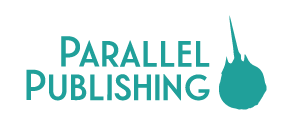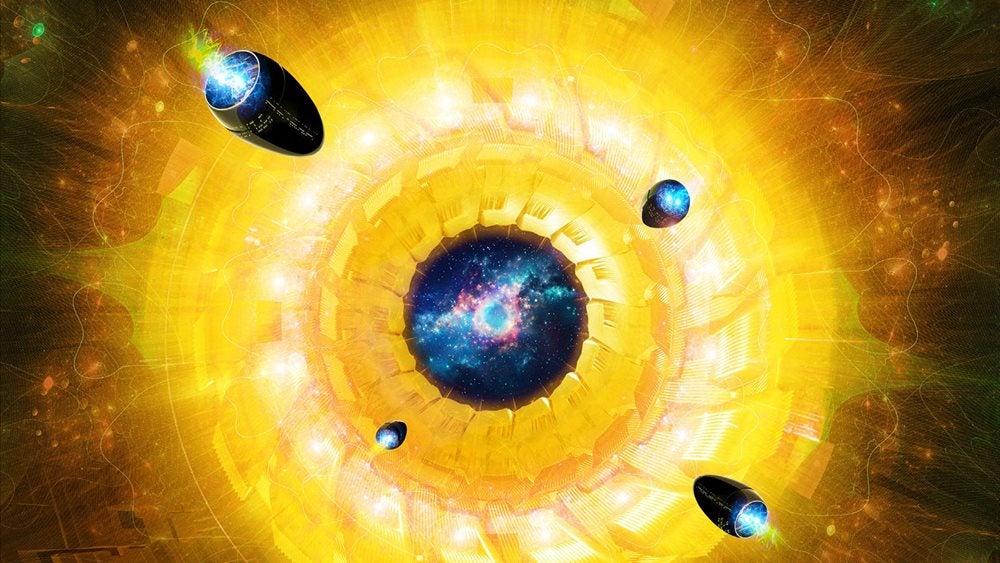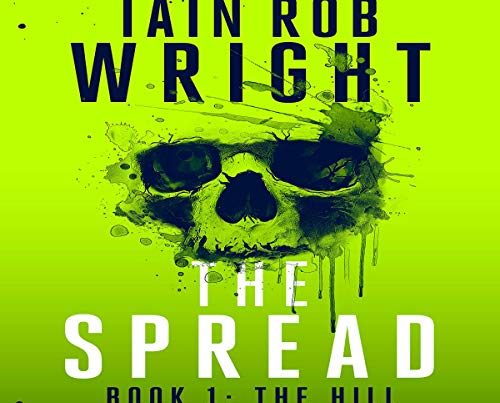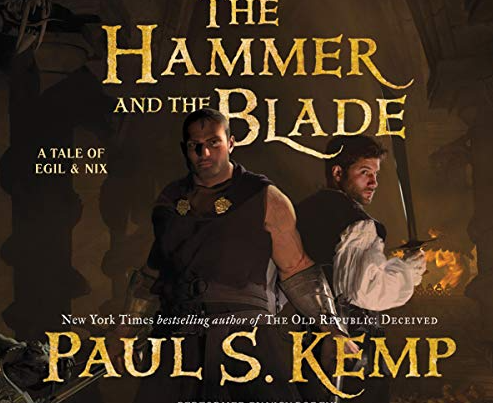In May 2020 we were lucky enough to interview Peter F. Hamilton for the release of his novel Salvation Lost. He’s back this year with a new audiobook: A Hole In The Sky. Chris Cunliffe caught up with him.
Thanks for joining us, Peter! Where did the inspiration for the setting of A Hole in the Sky — a generation ship — come from?
I haven’t written a story set in a generation ship before, and it’s always been a theme which interested me. In addition, the restriction of having plot and characters confined to a single ship is a good challenge for a writer, which is always a good thing. I’ve had the idea for the Arkship Trilogy for several years, so it was just a question of when I could get round to writing it.
Why the move to young adult fiction for this? And why audiobook?
It’s not a permanent move to the young adult genre; as I said before I like to make my books different. In this case, having a teenager, Hazel, was the best way to examine and explain life on an arkship, as she herself is learning about the small world she’s been born into, and questioning its structure and society. Having a teenager as the main protagonist defines the publishing category, but I’m hopeful that it will appeal to readers of any age.
It’s been released as an audiobook first because Tantor made the offer first. My agent is in talks with publishers about releasing it in written book format. No — I don’t have a date for that yet.
The restriction of having plot and characters confined to a single ship is a good challenge for a writer.
A Hole in the Sky is very different from the sweeping space operas you often write. Did this change your approach to the writing?
I think the biggest change in my writing for this has come from writing it in first person. I’ve written several short stories in this form, but never a novel before. Having a single viewpoint does change the perspective. I think it works in this case because of the smaller scale involved with a story that deals with just one problem affecting a limited number of people, as opposed to a galaxy full of inhabited worlds.
I found the two main characters (Hazel and her brother Frazer) to be a real highlight; their relationship comes across as very authentic. Is this relationship based on yourself, or anybody you know?
Not me. But I do have two children of remarkably similar ages to Hazel and Frazer. That may have influenced characterisation — but I couldn’t possibly comment.
I thought that ‘Daedalus’ was a fantastic name for the ship, with some great implications about its history and what might be coming. What led you to this name?
I have a copy of the British Interplanetary Society’s Project Daedalus, which was conceived during the seventies, the first practical study on building an interstellar spaceship. It’s a seminal work that gets a lot of references, especially among my generation of science fiction writers. The BIS chose the name because in mythology although Icarus flew too close to the sun and fell into the sea, Daedalus who accompanied him had a successful flight and reached safety. That’s good enough for me.
The story brings out the idea that a person must be able to contribute to their community very starkly when Frazer is injured, but the society seems to discount her brother’s brilliant mind when deciding to cycle (euthanise) him. What do you think this kind of attitude says about a people?
The notion of contribution in this case is due to the type of society on Daedalus, which really only values physical work. The inhabitants require stability in order to husband the arkship’s limited resources until the end of the flight. Therefore, to them, people who want to question their life and change things are undesirable, and potentially even threatening. It speaks to the danger of blind faith to authority figures.
I think the biggest change in my writing for this has come from writing it in first person.
I’m really curious about Pride and Prejudice being Hazel’s favourite book. Obviously it contributes to her character, but I was wondering which came first: is she the way she is because she likes the book, or does she like the book so that you can justify how she is?
The book influences the way she interprets the behaviour of those around her — it’s a reference point. I always found it to be mildly subversive in the way it gently questions the rigidity of society at the time it was written, and especially the role women played in that era. It allows Hazel to draw certain parallels.
Do you have any teasers for the sequel to A Hole in the Sky?
Hazel and her friends find out exactly why the society they’ve lived in has been structured into the very specific pattern they’ve all been following for five hundred years. And it’s not good. They also discover a very unexpected ally.
Can you tell us anything about any plans for after this trilogy?
The contract for my next couple of books is currently being negotiated, so I can’t say anything about that other than it will be another space opera, and set in a different universe. After those have been written I’m planning to write the story of Sanctuary, back in the Salvation universe.
Thanks for your time, and we look forward to the next instalment!






